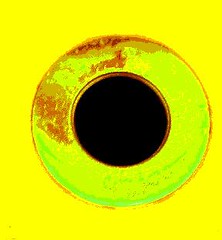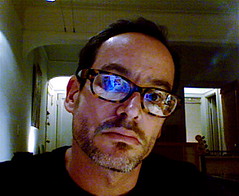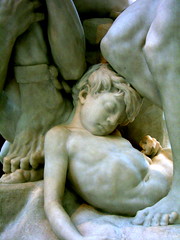
two doors
Originally uploaded by madabandon.
Yesterday I found myself contemplating the comment I received after my "depression" post. Although I was quite busy, finishing the second segment of the OEDIPUS music, I was also preoccupied with the issue of how depression is viewed. The commentator's remarks troubled me. So to exorcise the issue from my mind, at least for now, I will address it here.
In ILLNESS AS METAPHOR the late Susan Sontag addressed how tuberculosis and cancer, both diseases that were inevitably fatal in the nineteenth century (and a good part of the twentieth as well). Both were regarded as diseases brought on by individual temperament. TB was a disease that affected the sensitive, the artistic; such heightened sensitivity made one susceptible, and thus TB was a romantic disease, almost desirable. Cancer, on the other hand, was linked to repression; the repression of anger, of sadness, of other "negative" emotions led the body to turn against itself, to destroy itself from within. Modern science and medicine disproved these notions, but traces of them persist still, in that even today some cancer victims blame themselves, and a cancer patient is described as "battling" the disease, "fighting" it, so that, if the disease wins, the victim might be regarded as weak-willed. It is not insignificant that Sontag herself lived with cancer for several decades until she eventually died from it. She was frank about her illness. She did not hide it as something shameful.
When someone with chronic, life-long depression is exhorted to "think positive," or to change his/her outlook on life, the advice is inevitably borne of an attitude that depression is a flaw of character, a weakness, much as cancer was a disease of character in the Victorian mind. Many people with depression lead active, productive lives. I have much to be happy with in my life, much to be thankful for, and I do not need others to remind me of this.
I have learned to accept my depression as a fact of my life. Ignoring it, or refusing to speak of it, makes it shameful, like Sontag's cancer victims. Like Sontag with her cancer I will address my depression head on. It is important for people to realize that depression is an illness, a medical illness, not a weakness of character. As I wrote yesterday, I don't write this blog to be yet another blithe "Hallmark" card-like series of statements meant to hide the craggy ugly bumps that are a part of life's landscape.















